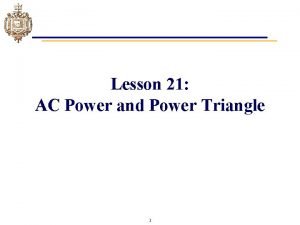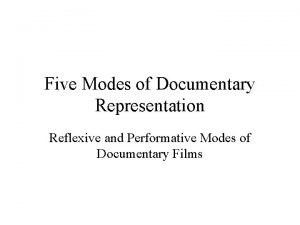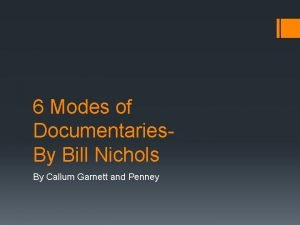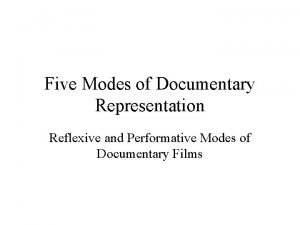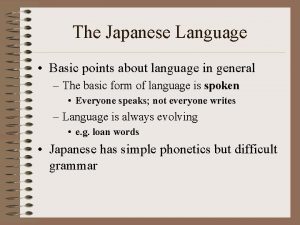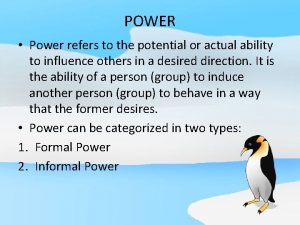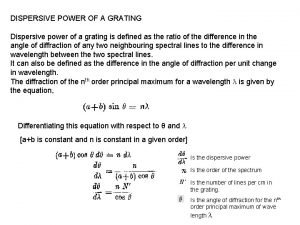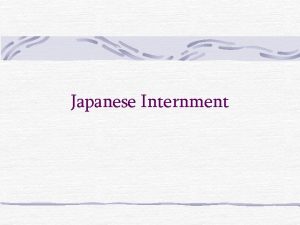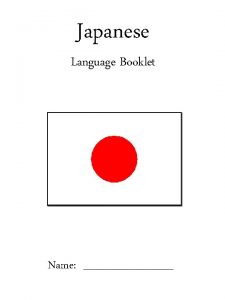Performative Language and Power Japanese and Swearing Hanayo

















- Slides: 17

Performative Language and Power: Japanese and Swearing #&$%! ! Hanayo Kosugi Nagoya Gakuin University, Japan

Swearing in Japanese Montagu(1967) says “Swearing, interestingly enough, is not a universal phenomenon: American Indian do not swear, nor do the Japanese, nor do Malayans and most Polynesians. ”

Performative Language Swearing in early modern English was described as performative language. “Language that itself does something or forces its readers or hearers to act in certain way. ” It “compels god to act as a witness and judge of the swearer’s words. ” -Mohr. M. J. (2003)

Performative Power “‘I name this ship the Queen Elizabeth. ’ – as uttered when smashing the bottle against the stern. ” “‘I do’ (take this woman to be my lawful wedded wife) – as uttered in the course of a marriage ceremony. ” “‘I give and bequeath my watch to my brother. ’ – as occuring in a will. ” - Coulthard, M. (1977)

Norito n n Nori: to tell, recite, command, reveal, decree To: a spell, magical device Norito is “words for reciting a spell. ”

Western and Japanese oaths n Oath at the Christian church: Do you, (name), accept in Holy Matrimony this woman(man) for better or for worse, in sickness or in health until death do you part? n Norito at the Shinto Wedding: I humbly speak before you. Today, on this fulfilled lively day, offering rice, sake and variety of food, with great music and dance, (name) and (name) are here to hold the beautiful wedding solemnly with matchmaker, (name). The marriage vows will not change eternally, these two will care and help each other and their respective families to flourish and enjoy prosperity now and in future generations.

Kotodama is the spirit of language. “In ancient times, people believed that language has a spiritual power and its work is miraculous. This is what we call the belief of Kotodama. ” - Michio Ono(1988) “The synchronicity of language and its entity (which is to say) actualizing the substance of the words by voicing them. ” - Motoyuki Izawa(1995)

Kotoba-gari (Word-hunting) “This is what the Japanese army must have thought. ‘English is the language of our enermy. Using the language of the enermy (performing kotoage) means making the power of kotodama which belong to our enemy more powerful. It’ll benefit them, so we won’t let anyone use it. That will lead us to the victory by doing so. ’” - Motoyuki Izawa(1995)

Translated words list Original(English) sports ragubii (rugby) sakka (soccer) gorufu (golf) food furai (deep-fried food) Saida(cider) Kare raisu (curry rice) translated version 闘球 tokyu (fighting ball) 蹴球 shukyu (kicking ball) 芝球 shikyu (lawn ball) 洋天 yoten (western tenpura) 噴出水 funshussui (spouting water) 辛味入汁掛飯 karamiiri shirukake meshi (spicy sauce on the rice)

Iikae (rewording) “Japanese people who are under the control of kotodama believe in a correlation between words and the entity the words refer to. When they experience some difficulties or inconvenience in reforming the entity, they rephrase the words instead just as if they were reorganizing the actual entity. They are gratified by doing so. It’s their bad habit. In other words, they deceive people by fiddling with words. ” - Motoyuki Izawa(1995)

Iikae words list original reworded version 値上 neage (rasing the price) 改定 kaitei (revision) 全滅 zenmetsu (annihilation) 玉砕 gyokusai (an honorable death) 敗戦 haisen (defeat, a lost battle) 終戦 shusen (the end of the war) 侵略 shinryaku (invasion) 進出 shinshutsu (advance) 事変 jihen (an incident) 入り iri (entering)

Names in Manyoshu Poem by Emperor Yuryaku Girl with your basket, with your pretty basket, with your shovel, with your pretty shovel, gathering shoots on the hillside here, I want to ask your home. Tell me your name! This land of Yamato, seen by the gods on highit is all my realm, in all of it I am supreme. I will tell you my home and my name.

Names n In the world of kotodama, knowing somebody’s name means to dominate that person…. Her name (word) and the entity which is represented by that name (herself) are inseparable. Kotodama unites the words and the entity they refer to. - Motoyuki Izawa(1995)

Poems in Manyoshu n #590 Aratamano Toshinohenureba Imashihato Yumeyowagaseko Wagananorasuna (We have been together quite a while; however please don’t tell anybody my name. ) n #2947 Omounishi Amarinishikaba Subewonami Warehaiiteki Imubekimonowo (I couldn’t help myself in letting her name fall from my lips because I miss her so much, I knew I shouldn’t. )

Kabuki: the highly stylized classical Japanese dance-drama n Do not perform anything shameful for parents and children to watch together. Do not create anything which might cause a wanton relationship between a man and a woman because people from the upper class or foreigners might see the play from now on. n The original purpose of Drama is to encourage doing good and punish wrong. Made-up stories should be abolished from now on. In some Kabuki plays, the characters real historical name has been changed intentionally, for instance, Nobunaga Oda is Harunaga Oda. In this case, children might remember the wrong historical fact because of it. Do not perform anything against the truth.

Kotodama and the truth All the phenomena in Japan, norito, kotoba-gari, iikae, the names in Manyoshu and kabuki are the result of a nervousness in performative situations. n Mohr’s idea of the truth in the Christian world “A simple ‘yes’ or ‘no’ should, ideally carry as much weight as an oath, should be able to secure the truth and serve as a pledge for future actions… obscene words like ‘fuck, ’ and ‘cunt’ come to fill the role of Christ’s ‘yes’ and ‘no. ’ Both kinds of words speak the truth – ‘yes’ and ‘fuck’ are the simplest and most direct words for certain things. ”

Conclusion “What is true is what is naked, without disguise, fully open to the eyes and understanding of viewers or readers… This openness is a key characteristic of obscene language. ” - Mohr. M. J. (2003) Japanese + naked verbal truth = swearing? ? ? Japanese – the power of kotodama = the real truth? ? ?
 Autsin butler
Autsin butler Butler's theory
Butler's theory The real lesson 21
The real lesson 21 Types of direct speech acts
Types of direct speech acts Reflexive documentary
Reflexive documentary Performative mode
Performative mode Reflexive documentary
Reflexive documentary Bill nichols types of documentary
Bill nichols types of documentary Performative verbs
Performative verbs Example of representative speech act
Example of representative speech act The performative hypothesis
The performative hypothesis Reflexive documentary
Reflexive documentary Standard language vs home language
Standard language vs home language Motivist japan
Motivist japan Yama kanji
Yama kanji Solar power satellites and microwave power transmission
Solar power satellites and microwave power transmission Actual power
Actual power The dispersive power of a grating is defined as the
The dispersive power of a grating is defined as the


